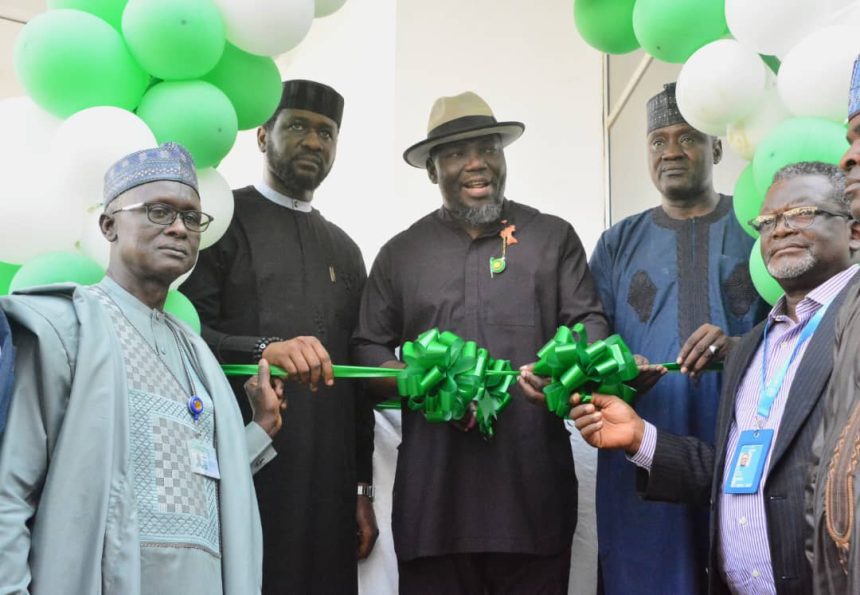By Chidi Ugwu
The Minister of Environment, Malami Balarabe Abbas Lawal, has taken a significant step in the fight against plastic pollution with the commissioning of a plastic waste reverse vending machine at the National Assembly Complex, Abuja.
Speaking at the event on Wednesday, the minister highlighted the initiative as a testament to his administration’s unwavering commitment to creating a cleaner, greener, and more sustainable Nigeria.
He said, “This initiative is part of our broader efforts to tackle the growing challenge of plastic pollution in the country. By introducing innovative solutions like this vending machine, we are not only promoting recycling but also fostering a culture of environmental responsibility among Nigerians.
The Minister highlighted reverse vending machines as an innovative solution for effective waste management. These machines enable individuals to deposit bottles and other recyclable materials in exchange for rewards, fostering a win-win approach to recycling.
He further emphasized that this simple yet impactful technology promotes proper waste disposal while cultivating a culture of recycling. By empowering citizens to actively participate in environmental protection, the initiative aims to make sustainability a shared responsibility.
The Minister emphasized that, beyond its environmental benefits, the machine embodies the principles of a circular economy.
He highlighted that, rather than allowing plastic waste to accumulate in landfills or pollute the oceans, the technology ensures it re-enters the production cycle. This approach not only curbs the demand for new raw materials but also significantly reduces the ecological footprint.
He argued that the country stands to gain significantly from cleaner communities, with reduced plastic pollution on streets and in waterways. These efforts, he noted, would also unlock economic opportunities by creating jobs and boosting local industries.
The Minister further highlighted additional benefits, including heightened public awareness, which would nurture a sense of responsibility and sustainability, particularly for future generations.
Mr. Mahmud Adam Kambari, disclosed that the initiative is being implemented in collaboration with the United Nations Industrial Development Organization (UNIDO) and funded by the Government of Japan.
Expressing optimism about the program, Kambari stated that it has the potential to serve as a model for other regions across the country. He emphasized that the technological solutions employed in the initiative could effectively address pressing environmental challenges.
The Chairman of the House Committee on Environment, Hon. Julius Pondi, has expressed his gratitude to the Ministry of Environment, the United Nations Industrial Development Organization (UNIDO), and the Government of Japan for their remarkable gesture and collaborative efforts.












